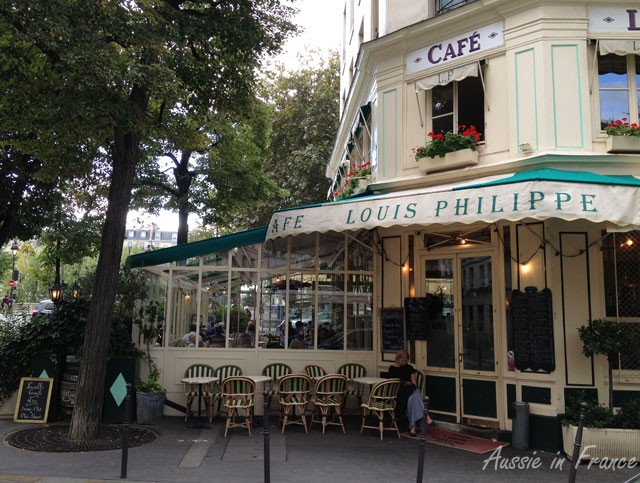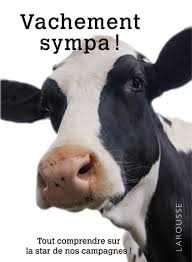I’m walking along the street near the Louis Philippe Café behind a young man of about 30, talking loudly on his iPhone and madly gesticulating. “600 euros“, he says, “Un truc de ouf!” and I immediately think of my daughter in New York because it’s one of her expressions.
Truc, truc muche, machin truc, have all been around for a while, but truc de ouf is more recent. So what, exactly, is a truc?
First, it’s a substitute word, like our thingumajig, thingummy, whatsis or even just thing or contraption. Machin is a less trendy synonym. Je trouve pas le truc = I can’t find the whatis. T’as vu le truc de la télé? Have you seen the remote control? Il portait un truc moche. He was wearing something really ugly.
Machin and its feminine, machine, are also used as name substitutes. Le père Machin = Mr what’s-his-name. Machine était là aussi = What’s-her-name was there too.
You can combine it with chouette too, as in machin chouette or go the whole way and say machin truc chouette. You may remember about chouette from my previous post on Spanish cows.
However, truc is also used more specifically, in contexts such as les trucs du métier, meaning the tricks of the trade, or on le connaît, leur truc = we know what they’re up to. Il n’a pas compris le truc means he hasn’t got it. Here, it’s no longer a substitute but an actual expression. Il y a un truc! there’s a trick to it! or something’s gone wrong (depending on the context).
Why trucmuche? Muche, it seems, is a (little used) suffix added to any word to make it more incomprehensible. I don’t know what its origin is though.
Truc de ouf is actually verlan, which is a particular kind of French backslang. You invert the syllables and then cut off anything you don’t like to make it sound like a word. Meuf = femme, keuf = flic (slang for police), keum = mec, beur = Arabe.
The word verlan itself comes from à l’envers meaning back-to-front. So truc de ouf = truc de fou = crazy thing.
I may use truc (not often, though, and only when it’s not a substitute, because I’m a maddening purist most of the time), but I would never use truc de ouf or I’d sound like mutton dressed up as lamb, for which I have never found an equivalent in French, by the way, probably because it doesn’t seem to be a concept here. My grey hair makes me stand out in the crowd!
If you have enjoyed reading this, don’t forget to subscribe to new posts using the subscription form on the top right – that way you’ll get them directly on your smart phone or in your mail box! And I love to hear your comments!








